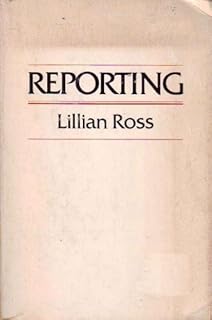By Jessica Mizzi
Lillian Ross, the legendary New Yorker feature writer, has very definite views on how she believes a
reporter should act during interviews and writing their articles. She
believes that the “fly on the wall” technique is not to be used, because “a
reporter doing a story can’t pretend to be invisible… he or she is seen and
heard and responded to by the people he or she is writing about.” In other
words, Lillian argues in Reporting (1964) and in Reporting Back: Notes on Journalism (2002) that reporters should be highly
involved in the stories that they cover; they should demonstrate passion
towards the people, situations, and events that appeal to them.
Ross follows these guidelines in her work, adhering to her
belief in only writing about things that she likes as “clearly and simply and
straightforwardly as possible.” She trusts her initial response to any
person she interviews, and builds her story from there, which I believe to be a
very critical aspect of journalism. In my opinion, reporting is meant to
be based on raw, gut feelings, because as Lillian explains, “the first
experience--of anything, to me--is the most significant and the most memorable.”
This idea of following your first instinct again contributes to the
concept that passion should be involved in reporting. In addition, she
believes that financial reasons should never be the motivation for writing
assignments because this limits a writer, disallowing them to pursue what they
really want to write about.
Perhaps the most important aspect of reporting that Lillian
Ross suggests is listening to the person being interviewed. She says, “I
try to listen while I write, and if I can’t do both simultaneously, my
listening takes priority. Listening is the quintessential word.” I
agree with Lillian that truly listening is the key to writing a well developed
story. Paying attention to details during interviews, and being able to
convey important messages and themes in writing is essential to being a
successful reporter.
